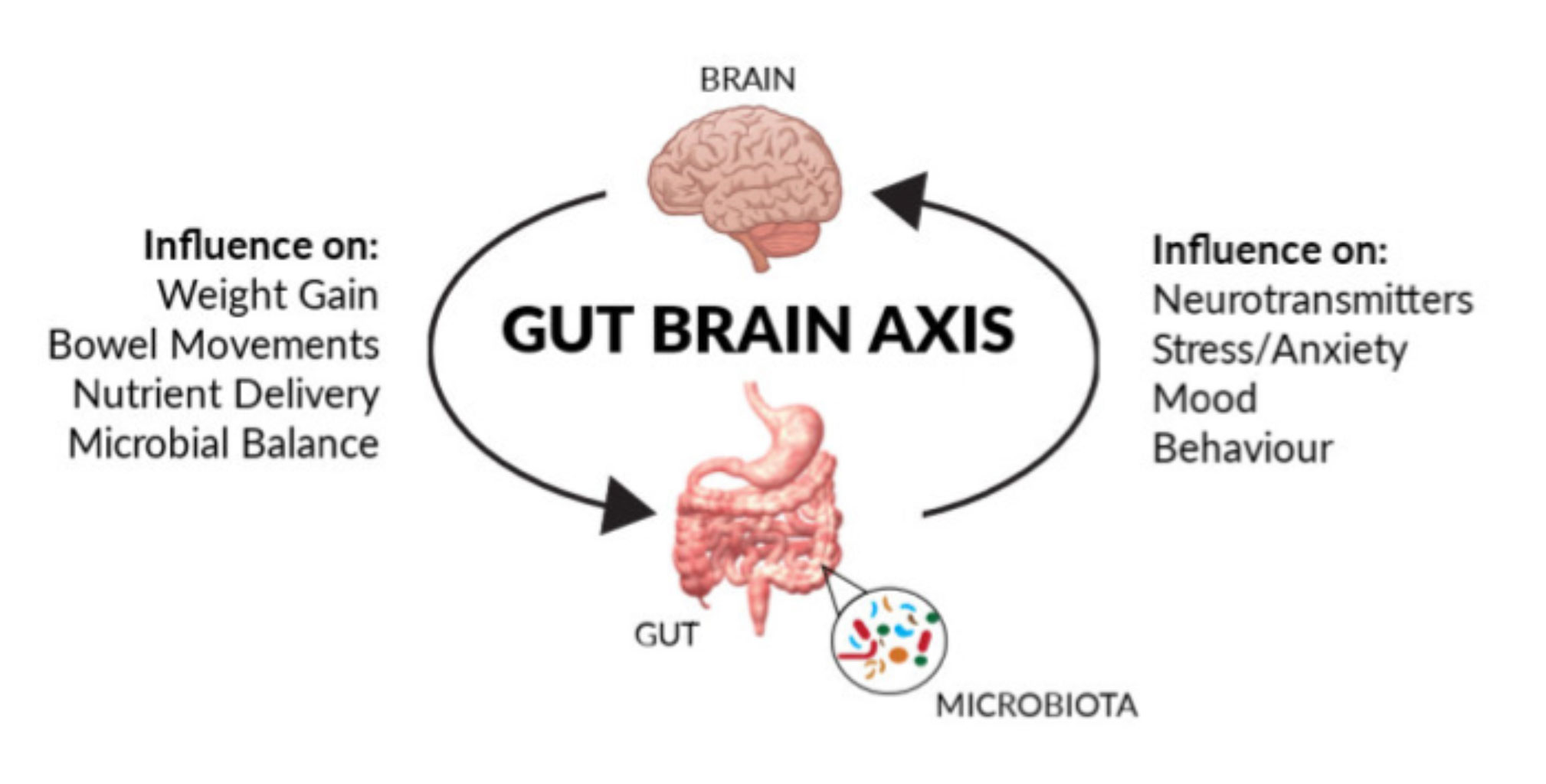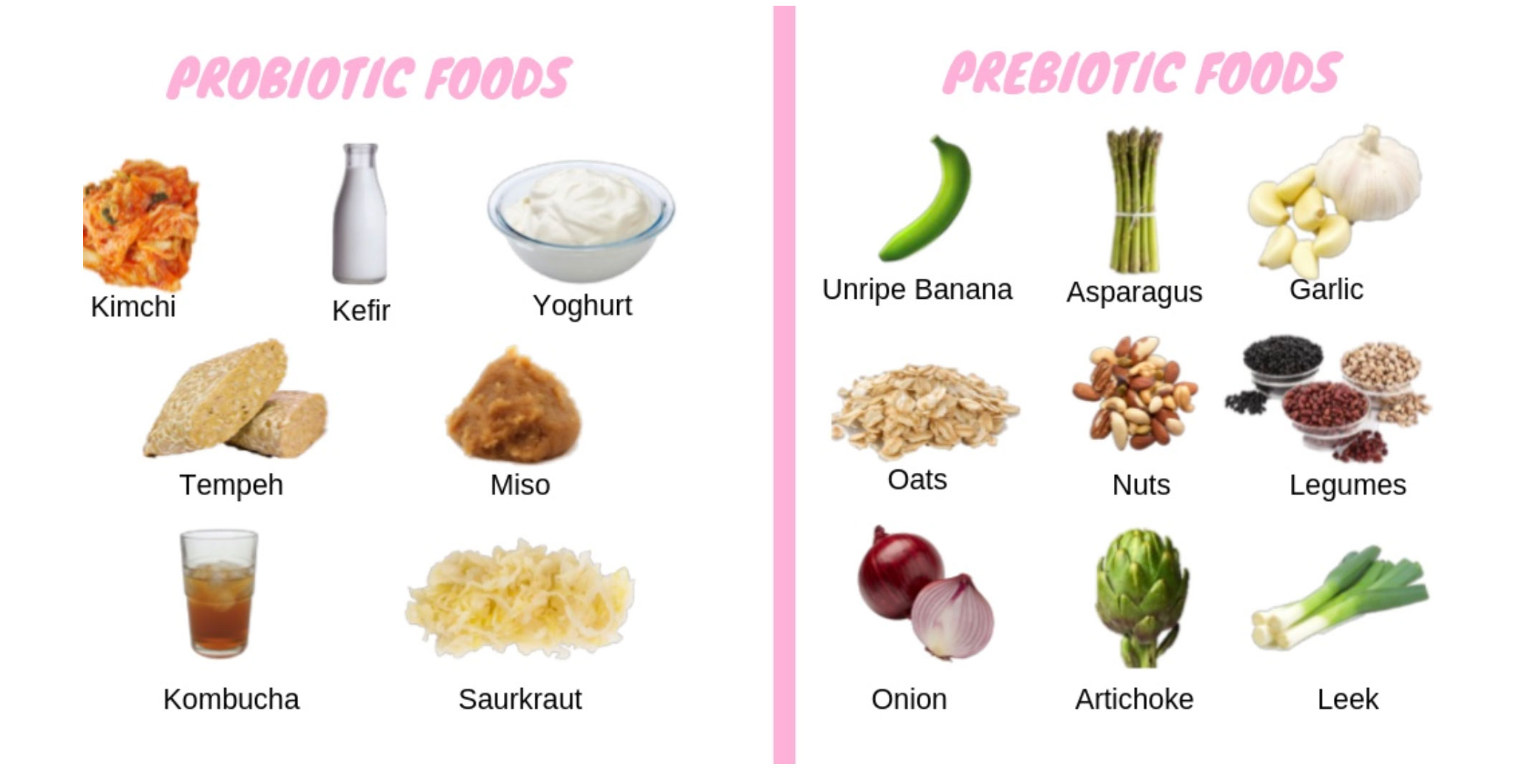
Fortifying Your Immune Health
Having lived through a once-in-a-lifetime pandemic, most of us are familiar with the basics of self-care to avoid getting sick. Despite this, the truth is that coronavirus
Have you ever had that feeling of “butterflies” in your stomach? That fluttery sensation we sometimes feel prior to a driving test, a speech or a big event? This feeling suggests that your brain and gut are connected in some way. Emerging evidence proposes your gut may affect your brain health, and brain may affect your gut health, this is known as the gut-brain axis.
It has been proposed that alterations in intestinal bacteria may play a role in neuropsychiatric conditions like stress, anxiety and depression. Situated in your head is the Central Nervous system (CNS), made up of the brain and spinal cord. Rightly called the “first brain” due to its primary role in controlling body functions. Also, situated in the bowel is the Enteric Nervous System (ENS), a nine metre network from your esophagus to the anus. The ENS and CNS are formed from the same embryonic tissue, share similar neuronal networks, and hormones. The gut – brain produces the same amount of dopamine (‘high’ hormone) and 90% of serotonin (‘happy’ hormone) compared to the first brain. The gut- brain can work independently, and is responsible for 70% of the body’s immune system which earns it the right to be called the “second brain”. This intertwined network is known as the gut-brain axis.
The Gut-Brain Axis
Your gut and brain are linked through chemicals called neurotransmitters, as mentioned above. The neurotransmitter serotonin, for example, contributes feelings of happiness it also helps control the body’s internal clock. Many of these neurotransmitters are actually produced in your gut by the trillions of microbes living there, in fact we harbor a large microbial ecosystem on and in our body that outnumber the human genes by factor of 100. An average person has approximately 1.5 kilograms of gut bacteria called the microbiome.

There is now a significant body of evidence that indicate that physiological and psychological disorders (anxiety and depression) are influenced by the gut microbiota. A lot of serotonin is produced in the gut as well, additionally to this your gut also produces another neurotransmitter called gamma-aminobutyric acid (GABA) which helps control feelings of fear and stress.
Your gut-brain axis is also linked through your immune system! Your gut and gut microbes control what is passed into the body and what is excreted, which plays a role in the body’s inflammatory response. There are a few foods and nutrients that are especially beneficial for the brain-gut axis, one of which is omega-3 fatty acids. These fats are found in high quantities in the human brain and have been shown to increase the good bacteria in the gut, and reduce the risk of brain disorders. Best sources of omega -3 fatty acids include oily fish, hemp and chia seeds. Fermented foods are also helpful for the brain-gut axis, including yogurt, kefir, and sauerkraut, since they each contain healthy microbes like lactic acid, which can impact healthy brain activity.
Probiotics Role
Using a good probiotic suitable for you may be an important factor in achieving stress reduction. Some probiotics have been shown to improve symptoms of stress, anxiety and irritable bowel syndrome. Studies have shown that taking a probiotic containing Bifidobacterium longum for six weeks significantly improved mental wellbeing. Prebiotics can also play a role too. As a refresher, a prebiotic is a type of dietary fiber that feeds the friendly bacteria in your gut. This helps the gut bacteria produce nutrients for your colon cells and leads to a healthier digestive system. One such prebiotic called galactooligosaccharides (GOS) significantly reduces the amount of the stress hormone called cortisol when taken over a three week period.
The gut microbiota is now being viewed as a virtual endocrine organ that has bidirectional communication with the central nervous system through the microbiome-gut-brain axis. Probiotics could directly, or through influence of other gut microbes, play a role in depression by inhibiting gut and systemic inflammation and activating the microbiome-gut-brain axis.
Strengthen your gut-brain connection by incorporating a probiotic and/or probiotic rich foods in your routine, and support healthy digestion, immune health, and even aid in mental wellbeing and stress relief!
Probiotic Foods
Many foods are rich in probiotics, including:
Prebiotic Foods
By including a variety of foods in their diet, people can ensure that they consume a range of prebiotics that may fuel various strains of bacteria. Prebiotics are in many high-fiber foods, including some fruits, vegetables, and whole grains. Some probiotic-rich foods may also contain prebiotics.

100% D-lactate free – ProBiome Plus contains beneficial probiotic strains which do not produce D-lactate, a form of lactic acid. The accumulation of acids in the GIT can lower the luminal pH in the large intestine, which may impact intestinal permeability. Lactic acid build-up may impact intestinal permeability and affect the survival of beneficial flora which is something to avoid when trying to boost your mental health and overall wellbeing. ProBiome Plus (D-lactate free) contains well researched specific strains.
Contact us if you would like to purchase some of this.

Having lived through a once-in-a-lifetime pandemic, most of us are familiar with the basics of self-care to avoid getting sick. Despite this, the truth is that coronavirus

Polycystic ovarian syndrome (PCOS) is the most common hormonal disorder in females of reproductive age. This prevalent syndrome is a diverse disorder with different underlying biological mechanisms and is
Do you have any questions?
Please, get in touch.
P: 021 083 05423
E: info@keynutrition.co.nz
Do you have any questions?
Please, get in touch.
P: 021 083 05423
E: info@keynutrition.co.nz
Do you have any questions?
Please, get in touch.
P: 021 083 05423
E: info@keynutrition.co.nz
Do you have any questions?
Please, get in touch.
P: 021 083 05423
E: info@keynutrition.co.nz
Do you have any questions?
Please, get in touch.
P: 021 083 05423
E: info@keynutrition.co.nz